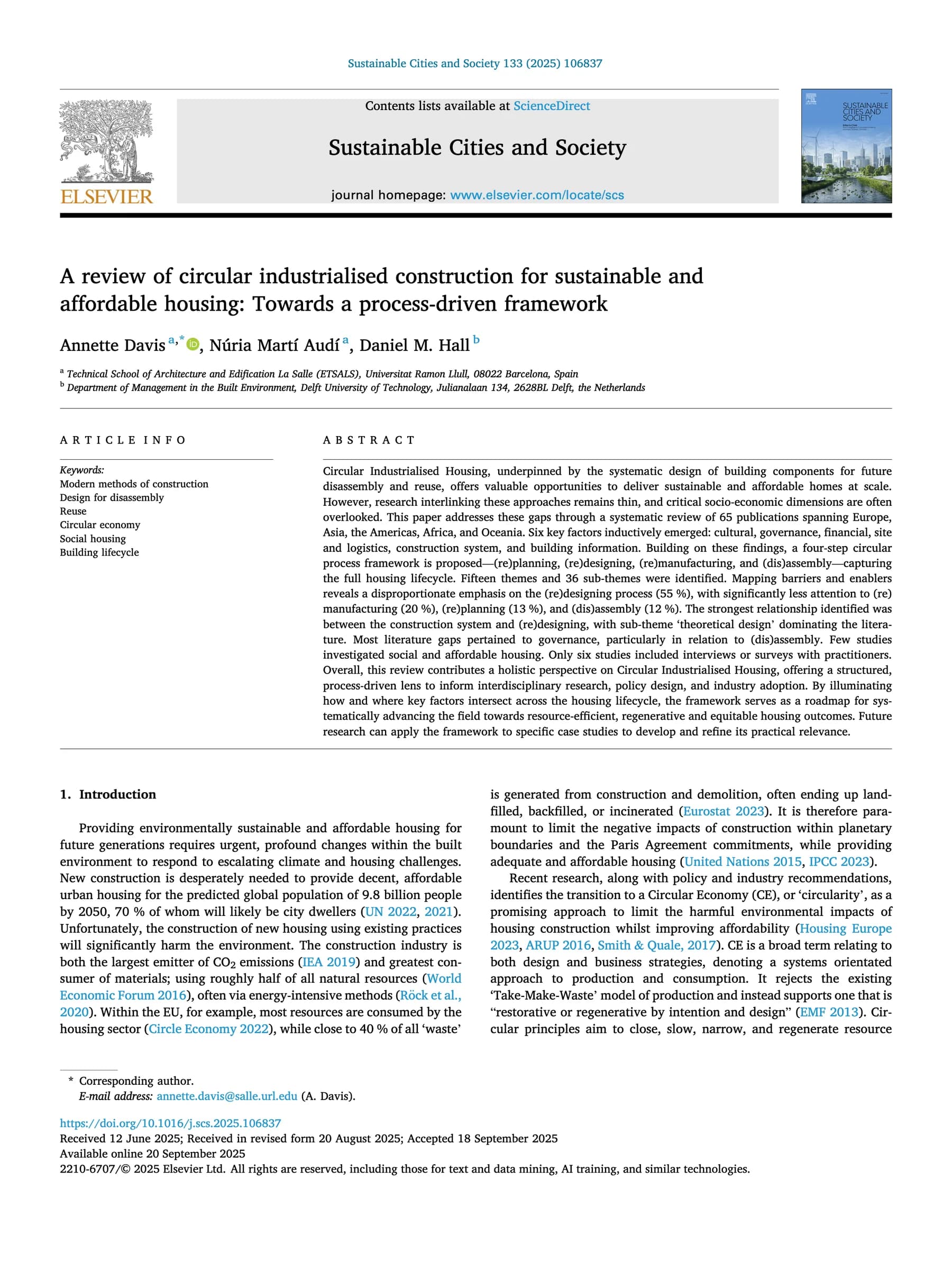AI-Generated Summary
Context and Authors
The article titled "A review of circular industrialised construction for sustainable and affordable housing: Towards a process-driven framework," authored by Annette Davis, Núria Martí Audí, and Daniel M. Hall, presents a comprehensive exploration of circular industrialised housing. Published by the Technical School of Architecture and Edification La Salle (ETSALS) and the Department of Management in the Built Environment at Delft University of Technology, this research delves into the pressing need for sustainable housing solutions in response to escalating climate challenges and urbanization.
Circular Industrialised Housing
Circular Industrialised Housing (CIH) focuses on designing building components for future disassembly and reuse, thereby offering sustainable and affordable housing solutions. The authors conducted a systematic review of 65 publications from various regions, including Europe, Asia, and Africa, identifying six key factors influencing CIH: cultural, governance, financial, site and logistics, construction system, and building information. They proposed a four-step circular process framework encompassing (re)planning, (re)designing, (re)manufacturing, and (dis)assembly, highlighting the full lifecycle of housing.
Key Findings
The research revealed a significant emphasis on the (re)designing process (55%), while (re)manufacturing (20%), (re)planning (13%), and (dis)assembly (12%) received less attention. The interrelationship between the construction system and (re)designing was notably strong, with little focus on governance issues related to (dis)assembly. The study noted that most literature has centered on modern construction methods without adequately addressing social and affordable housing, despite the pressing need for such solutions.
Importance of Circular Economy
Transitioning to a Circular Economy (CE) is essential for mitigating the environmental impacts of construction, which is the largest emitter of CO2 and consumer of natural resources. The EU has adopted various policies, such as the Circular Economy Action Plan, to promote sustainable practices in housing. However, despite these efforts, traditional construction methods dominate, and CIH practices remain underexplored, particularly in developing regions.
Barriers and Enablers
The paper identifies several barriers hindering CIH, including cultural resistance to disassembly, inadequate governance frameworks, and financial constraints. The authors emphasized the need for policy incentives, such as subsidies for adopting circular practices and improved building regulations that facilitate reuse. They also called for greater interdisciplinary research to explore the complex interactions between social housing and circularity.
Future Research Directions
Future studies should focus on applying the proposed framework to real-world case studies to refine its practical relevance. The authors encourage further exploration of the governance factors affecting (dis)assembly processes and the role of social housing in advancing circularity. They stress the importance of collaboration among stakeholders to develop effective strategies that integrate CIH principles across the housing lifecycle.
Conclusion
In summary, the review by Davis et al. provides valuable insights into the potential of Circular Industrialised Housing to address both sustainability and affordability in urban environments. By offering a structured framework and identifying key factors influencing CIH, the research lays the groundwork for future interdisciplinary studies aimed at enhancing sustainable housing practices throughout Europe and beyond.
